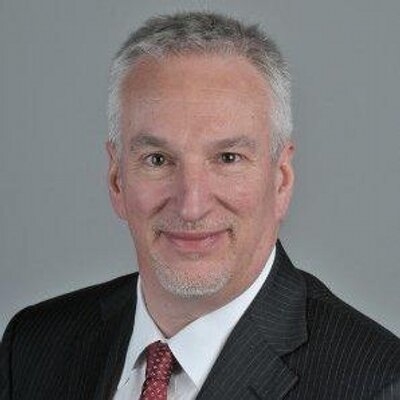After 16 years at the University of Chicago Medicine and Biological Sciences, Eric Yablonka had no plans to leave his post as the organization’s vice president and chief information officer.
Then Stanford came calling with an opportunity he couldn’t turn down.

Yablonka will become Stanford Health Care’s new CIO beginning in September, replacing Pravene Nath, who left the organization in March for a venture capital career at Summation Health Ventures. In an interview with FierceHealthcare, Yablonka characterized his time at the University of Chicago as “an amazing run” at a “top-notch organization,” but the prestige of Stanford coupled with the opportunity to collaborate with digital health innovators in Silicon Valley provided a CIO’s dream scenario.
“For me, the motivators were to consider capping of my career at one of the top academic medical centers in the country with a rich history of both excellent clinical care and superior research, and do that in an environment that is surrounded by innovation—that was too good an opportunity to pass up,” he said.
RELATED: Academic medical centers team up with Google to bolster machine learning and predictive analytics
There are common threads between the University of Chicago and Stanford Health Care. Both organizations have partnered with Google to use machine learning and advanced analytics to improve patient care and advance precision medicine. Stanford is also preparing to open a new state-of-the-art hospital in 2018. Over the course of his career, Yablonka has been involved with the construction of two new hospitals at the University of Chicago, as well as a new research building.
“That’s right in the wheelhouse of what Stanford is trying to do,” he said.
Yablonka also wants to carry over his long-held focus on advanced real-time analytics to create an event-driven environment of care that supports patient care and quality improvement. Part of the University of Chicago’s partnership with Google was focused on using machine learning to predict a patient’s risk for cardiac arrest.
RELATED: At Stanford, algorithms and data fuel precision health
In the end, geography was a big draw for Yablonka. Although he was quick to praise Chicago’s startup culture, he acknowledged that few hospitals are surrounded by the innovative forces of Silicon Valley, which provides new opportunities to leverage cutting-edge software and digital applications to impact healthcare in both large and small ways.
“There’s certainly a scale there that isn’t really duplicated in many other places," he said. "I don’t think that automatically changes the healthcare industry, but I think it gives it a lot of inertia. It’s the exciting part of being in that area.”